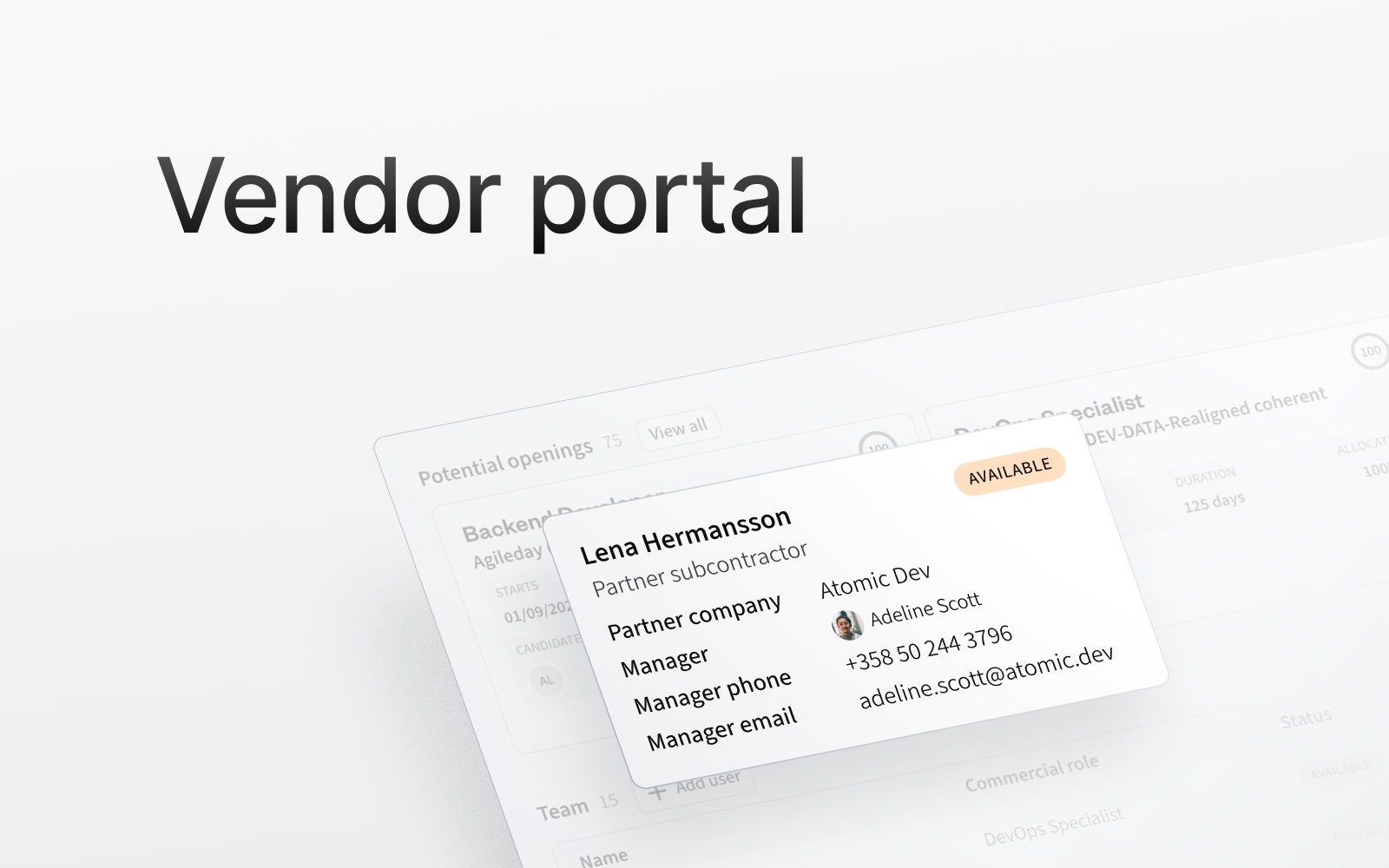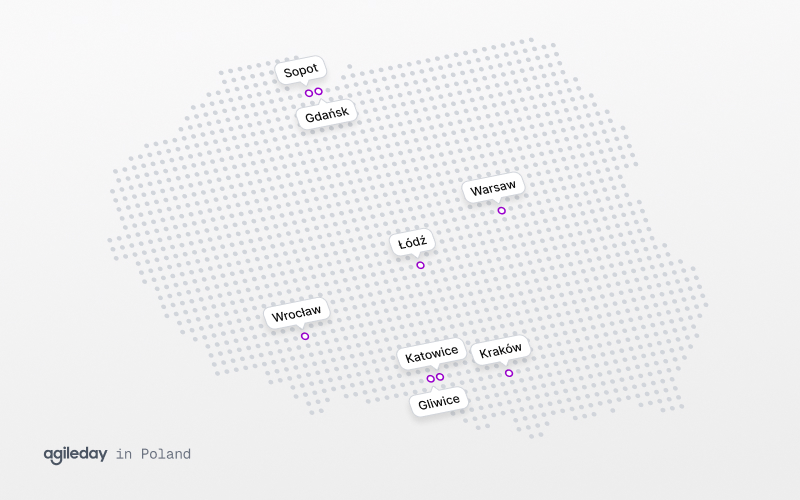Making people data operational with Core HR

Core HR is a powerful extension that brings sensitive HR data into the same space where people already plan, staff, and grow. All of it is powered by Agileday’s AI-driven, real-time context.
Why we built Core HR
There were two key reasons:
1. To connect HR to the business operations
When HR data lives in isolation, even the best people practices fall short. Time-off approvals happen blindly. Talent development is well-intentioned but disconnected from strategy. And growth plans? They exist, but often have nothing to do with what the business is planning, selling, or struggling to deliver based on a lack of skills.
Agileday already connects “soft HR data” such as skills, availability, and certifications to project allocations, resourcing, and pipeline planning. Core HR takes this further by embedding the rest of the HR layer directly into those same operational workflows.
“As an example, in most systems vacation requests happen in a bubble,” says Mikko Virtanen, Co-founder & Co-CEO. “With Agileday, you see how a time-off request affects real project allocations. You’re not approving in the dark.”
And when it comes to growth planning, Agileday brings real context. Employees receive development suggestions based on future project demand, upcoming sales, and internal priorities. These aren’t just based on personal interests or generic frameworks.
“That’s what we mean by contextual AI,” explains Jaakko Hartikainen, Co-founder & Co-CEO. “It’s telling you what the business needs next.”
This helps HR teams become a proactive part of business planning. It ensures that employee development aligns with the company's needs for growth.
2. To reduce complexity, costs, and logins
As Agileday became the primary system for planning and resourcing, clients found themselves managing multiple tools just to handle basic HR tasks, such as storing salary history, updating personal information, or reviewing contracts.
Some were using disconnected HR software they no longer needed. Others were stuck in spreadsheets and shared folders. Core HR replaces all of that with one secure, permission-based experience.
“They were paying for tools that had become just a system of record,” says Mikko. “Users were already living in Agileday. So it made sense to bring the rest of HR there too.”
And for employees? Everything is in one place. No switching tools to update their home address or download a contract. It’s all available in context through the system they already use every day.
What Core HR includes today
Core HR is already live with several clients. Here’s what it enables right now:
Sensitive HR data management
Store job titles, salary history, emergency contacts, employment contracts, allergies, and more. All data is protected with audit trails and granular access controls.
Intelligent, configurable data model
Define the data fields you need. Whether it's allergies, bank details, or certifications, it’s all accessible via API or UI.
What’s next: Reporting and structured workflows
Here’s what’s on the roadmap:
Advanced reporting
Monitor trends like attrition, demographics, and tenure. Stay ready for regulatory requirements like the EU Pay Transparency Directive (Directive 2023/970), which mandates role-based salary reporting across regions and gender groups.
Structured workflows
Enable configurable performance reviews, one-on-one templates, development discussions, and multi-stage onboarding. All of this is tied to actual business context.
Replacing or supplementing your current stack
For some large global organizations, a dedicated HR system still makes sense. Agileday integrates seamlessly when that’s the case. But for many fast-scaling services firms, HR tools are only one part of the bigger picture. That’s why Agileday now offers Core HR - helping teams manage sensitive people data in the same space where they plan, staff, and deliver work.
“We believe HR shouldn’t sit on the sidelines,” says Jaakko. “When people data is part of everyday decisions, it becomes more valuable to the business and to the people themselves.”
Whether you're moving on from spreadsheets or modernizing a fragmented stack, Core HR is a step toward aligning HR with operations.
Want to see how Core HR might benefit your business?
Let’s talk. Contact our team for a brief, personalized walkthrough of how Core HR can benefit your operations.
Let the Agiledays begin.




